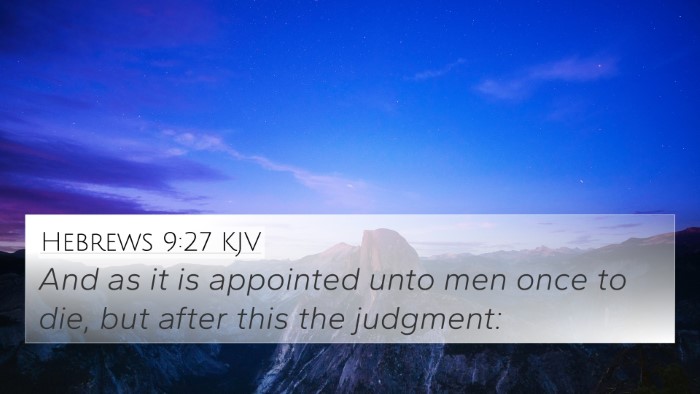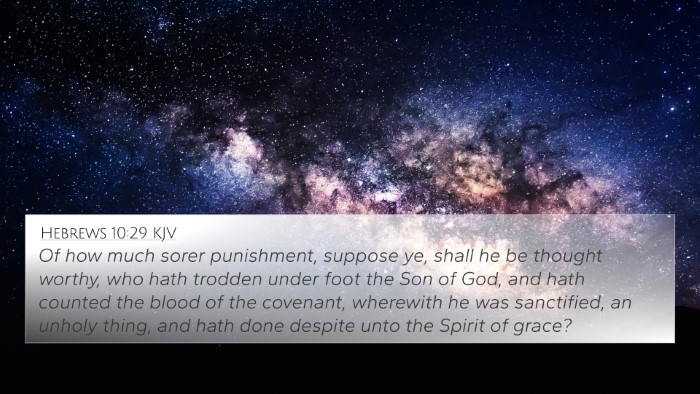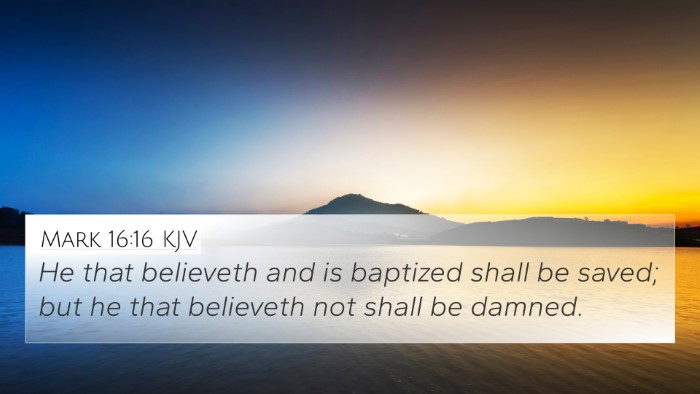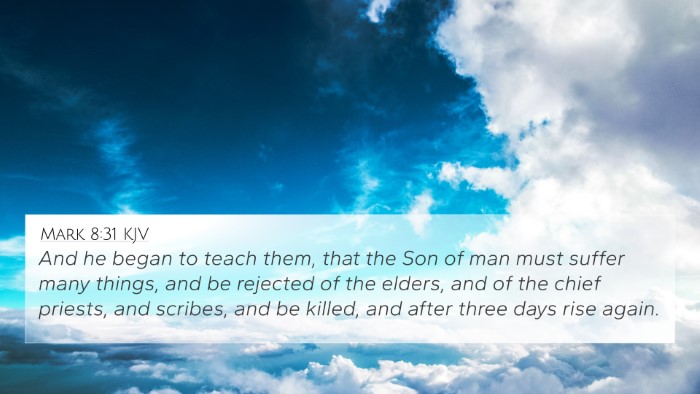Understanding John 12:48
In John 12:48, Jesus states:
"He who rejects me and does not receive my words has that which judges him— the word that I have spoken will judge him in the last day."
Meaning and Interpretation
This verse provides profound insight into the relationship between Jesus' teachings, human accountability, and divine judgment. The core messages can be summarized as follows:
- Rejection of Christ: Rejecting Jesus implies a refusal not only of His person but also of His teachings.
- Authority of His Words: The words of Christ are central to the message of salvation and judgment.
- Judgment at the Last Day: Jesus emphasizes a future judgment based upon adherence to His words.
Commentary Insights
Matthew Henry's Commentary
Henry explains that this verse highlights the importance of Christ's words and the consequences of ignoring them. He emphasizes that those who hear the Gospel but choose to disregard it do so at their own peril. The words of Jesus will be the standard by which lives are judged, demonstrating both the gravity and authority of His message.
Albert Barnes' Notes
Barnes points out the grave implications of this rejection. He notes that the phrase "the word that I have spoken" refers to the teachings of Jesus, which carry the full weight of divine truth. To disregard these teachings is not merely a rejection of a moral code but a rejection of the very pathway to eternal life.
Adam Clarke's Commentary
Clarke sheds light on the judicial aspect of this verse. He argues that every individual will stand accountable for their acceptance or rejection of Christ’s message. Thus, veneration of Jesus' words is not optional; it is essential for salvation. Clarke also links this notion with Old Testament prophetic warnings about the consequences of disobedience.
Cross-References
This verse is interconnected with several other Scriptures that elucidate similar themes regarding judgment, the authority of Christ, and the significance of His teachings. Here are some notable Bible verses that relate to John 12:48:
- John 3:18: "He who believes in Him is not condemned; but he who does not believe is condemned already..."
- Matthew 10:14-15: "...and whoever will not receive you nor hear your words, when you depart from that house or city, shake off the dust from your feet."
- Luke 10:16: "He who hears you hears Me, he who rejects you rejects Me..."
- Romans 2:16: "...in the day when God will judge the secrets of men by Jesus Christ, according to my gospel."
- 2 Thessalonians 1:8: "...in flaming fire taking vengeance on those who do not know God, and on those who do not obey the gospel of our Lord Jesus Christ."
- Revelation 20:12: "And I saw the dead, small and great, standing before God, and books were opened..."
- Acts 3:23: "...and it shall be that every soul who will not hear that prophet shall be utterly destroyed from among the people."
- John 14:24: "He who does not love Me does not keep My words; and the word which you hear is not Mine but the Father’s who sent Me."
- 1 John 5:12: "He who has the Son has life; he who does not have the Son of God does not have life."
- Matthew 7:24-27: "...whoever hears these sayings of Mine, and does them, I will liken him to a wise man who built his house on the rock..."
Connecting and Linking Biblical Texts
Using tools for Bible cross-referencing can greatly enhance the understanding of how John 12:48 aligns with various other scriptures. By exploring thematic Bible verse connections, believers can gain deeper insights into the implications of Christ's words in their own lives.
Importance of Cross-Referencing
The practice of cross-referencing Bible verses provides a comprehensive framework to discern themes, validate beliefs, and deepen one's faith:
- Tools for Bible Cross-Referencing: Utilize a Bible concordance or a Bible cross-reference guide for effective study.
- Identifying Connections: Seek connections between the Old and New Testament for a holistic view of God’s message.
- Comparative Bible Verse Analysis: Engaging in detailed cross-references enriches theological understanding.
How to Use Bible Cross-References
Incorporate methods of cross-referencing into personal study or sermon preparation by:
- Exploring links between different Biblical texts to reinforce theological themes.
- Using Bible reference resources to enhance sermons or discussions.
- Applying cross-referenced themes for better spiritual discernment.
Conclusion
In summary, John 12:48 serves as a potent reminder of the accountability each person has towards the teachings of Jesus. By embracing the implications of this verse, individuals can engage in richer theological reflection, active faith, and deeper understanding of divine judgment through the lens of Scripture.
This exploration into the interconnectedness of the Bible and the efficacy of cross-referencing serves as a valuable tool for anyone seeking to enhance their understanding of scripture and its relevance to their faith journey.


























